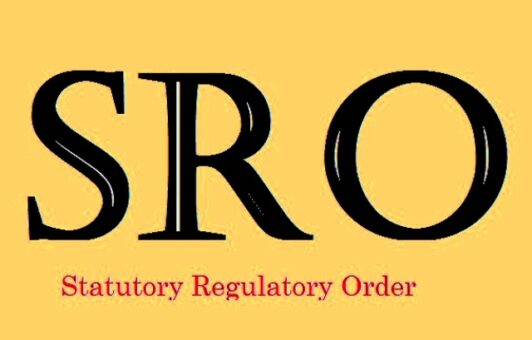The Federal Board of Revenue (FBR) has updated the list of items on which the sales tax will be collected on the basis of printed retail price.
The sales tax at the rate of 17 per cent on the retail printed price shall be applicable for tax year 2021/2022.
The items are included in the Third Schedule of Sales Tax Act, 1990 which is updated by the FBR up to June 30, 2021.
Following is the list of items:
Fruit juices and vegetable juices at harmonized system (HS) Code 20.09
Ice Cream with HS Code 2105.0000
Aerated waters or beverages with HS Code 22.01 and 20.02
Syrups and squashes with respective headings
Cigarettes with HS Code 2402.2000
Toilet soap with HS Code 3401.1100 and 3401.2000
Detergents with HS Code 3402.2000
Shampoo with HS Code 3305.1000
Toothpaste with HS Code 3306.1010
Shaving cream with HS Code 3307.1000
Perfumery and cosmetics with HS Code in respective sub-headings of 33.03 and 33.04
Tea with HS code of respective sub-headings of 09.02
Powder drinks with HS Code of 21.06
Milky drinks with HS Code of 2106.9090
Toilet paper and tissue paper with HS Code 4818.1000 and 4818.2000
Spices sold in retail packing bearing brand names and trade marks with HS codes 09.04, 09.06, 09.08 and 09.10
Shoe polish and shoe cream with HS Code 3405.1010
Fertilizers with HS Code of respective heading
Cement sold in retail packing with HS Code of respective heading
Mineral/bottled water with HS Code of respective headings
Household electrical goods, including air conditioners, refrigerators, deep freezers, televisions, recorders and players, electric bulbs, tube-lights, electric fans, electric irons, washing machines and telephone sets with HS Code of respective headings
Household gas appliances, including cooking range, ovens, geysers and gas heater with HS code of respective headings
Foam or spring mattresses and other foam products for household use with HS code of respective headings
Paints, distempers, enamels, pigments, colors, varnishes, gums, resins, dyes, glazes, thinners, blacks, cellulose lacquers and polishes sold in retail packing with HS codes of respective headings
Lubricating oils, brake fluids, transmission fluid, and other vehicular fluids sold in retail packing with HS codes of respective headings
Storage batteries excluding those sold to automotive manufacturers or assemblers with HS code of respective headings
Tyres and tubes excluding those sold to automotive manufacturers or assemblers with HS code of respective headings
Motorcycles with HS code of respective headings
Auto rickshaws with HS code of respective headings
Biscuits in retail packing with brand name with HS code of respective headings
Tiles with HS code of respective Headings
Auto-parts, in retail packing, excluding those sold to automotive manufacturers or assemblers with HS code in respective Headings
Sugar except where it is supplied as an industrial raw material to pharmaceutical, beverage and confectionery industries with HS code of respective heading.
Note: the implementation of sales tax on retail price on supply of sugar has been deferred by the FBR till November 30, 2021 through SRO 989(I)/2021 dated August 5, 2021.




